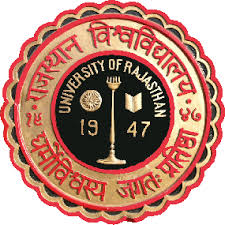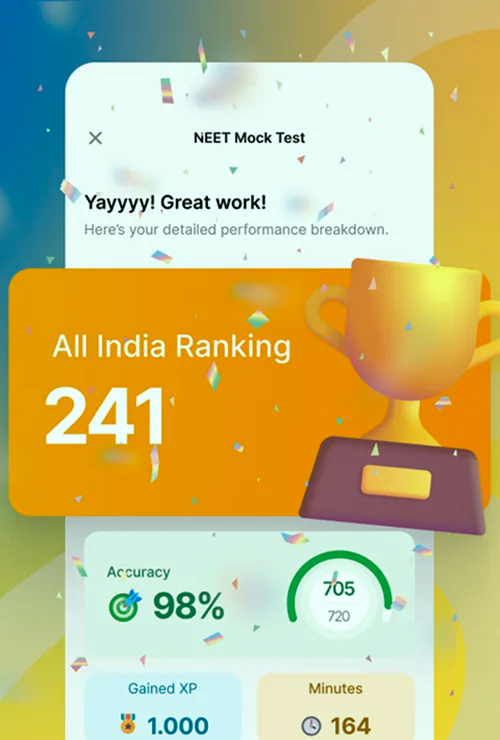General Information
The University of Rajasthan, located in the state capital Jaipur, is Rajasthan's oldest institution of higher learning, established in 1947 (originally as the University of Rajputana). It's a premier public State University, serving as a vital hub for education and research for decades.
Like many large state universities, it operates a dual model. It functions as a significant teaching and research university with numerous postgraduate departments and constituent colleges directly on its expansive campus. At the same time, it acts as a major affiliating university, providing academic governance to a large number of colleges located primarily in Jaipur and surrounding districts.
Key Recognitions:
Recognized by the University Grants Commission (UGC) under Section 12(B).
Holds the highest 'A+' Grade accreditation from NAAC (National Assessment and Accreditation Council).
Consistently features in NIRF rankings among Indian universities.
Holds necessary approvals from relevant professional bodies like AICTE (for specific Management/Technical courses), BCI (Law), NCTE (Education), etc.
MCI Recogination
Recognized for 100 seats when degree granted on or after February 2013. Renewal of permission with increase of seats from 100 to 150 seats granted in 2016-17. Recognized for 150 seats when degree granted on or after 2021-22. Permitted for increase of seats from 150 to 200 under EWS quota (103rd constitution amendment) for 2019-20 & onwards. Recognized for one (01) year for 2022-23 only. Permitted for admission for 2023-24. Annual renewal permission granted for 200 MBBS seats for AY 2024-25
Campus Facilities
The Campus: Green Lungs in Jaipur City
RU's main campus is a well-known landmark within Jaipur.
Location: Situated centrally in Jaipur, Rajasthan.
Campus Size & Vibe: It boasts a large, sprawling campus (often cited as over 300 acres) known for its extensive greenery, mature trees, and a blend of older and newer architectural styles. It offers a classic, expansive university atmosphere within the city.
Infrastructure & Facilities:
Central Library: A large and well-established library with a vast collection of books, manuscripts, theses, and digital resources.
Constituent Colleges & Departments: Numerous buildings housing its constituent colleges (Maharaja's, Maharani's, Commerce, Rajasthan College) and various postgraduate departments (Arts, Science, Social Sciences, Law, Management, Education, Fine Arts).
Laboratories: Equipped labs supporting practical work in various Science disciplines, Geography, Psychology, Home Science, etc.
Learning Spaces: Lecture halls, seminar rooms, auditoriums (like the impressive Humanities Auditorium).
Sports Complex: Comprehensive facilities for a wide range of indoor and outdoor sports, including large grounds, courts, potentially a swimming pool and gymnasium.
Museums & Gardens: Features like a Zoological Museum and Botanical Garden add to the campus resources.
Residential Facilities: Extensive hostel network for students and residential quarters for staff.
Amenities: Bank branches, post office, health center, guest houses, canteens, administrative blocks.
Hospital & Medical Facilities
Leading tertiary care hospital attached to the institution
Healthcare Connection: No MBBS College
The University of Rajasthan does not have its own constituent Medical College offering the MBBS degree, nor does it operate a large general teaching hospital for this purpose. Its academic strengths lie predominantly in Arts, Sciences, Social Sciences, Commerce, Law, Management, and Fine Arts. Medical colleges in Jaipur (like SMS Medical College) are affiliated with the state's health university, RUHS (Rajasthan University of Health Sciences). RU has an on-campus Health Centre providing basic medical aid.
Fee Structure
State University Affordability
Fee Structure: Highly Affordable State Education
Being a premier state university, RU offers education at very affordable fees for its regular, government-aided programs on campus and in constituent colleges. Self-financed courses will have higher fees.
City Details
Hostel & Mess
Campus Living: Extensive Hostel System
RU has a large, well-established residential system for students enrolled in its on-campus programs and constituent colleges.
Availability: Yes, the university manages numerous separate hostels for boys and girls within or adjacent to the main campus. Allotment is highly sought after and is based on merit, category, and distance criteria.
Hostel Life: Living in RU hostels is part of the traditional university experience, fostering community and discipline. Facilities include basic furnished rooms (mostly shared), common rooms, dining halls (messes), security, resident wardens, and access to campus amenities.
Mess: Each hostel typically operates its own mess providing regular meals at scheduled times, usually offering simple, standard fare.
Cost: As a state university, the combined cost for hostel accommodation and basic mess food is generally very economical. Expect annual charges to be highly affordable, likely in the ₹20,000 - ₹40,000 range (Needs confirmation from the Chief Warden's office), making campus living very budget-friendly.
Miscellaneous
Admissions & Career Pathways: Entrance Tests & Competitive Exams
Getting Admitted:
PG Admissions (Most MA/MSc/MCom/MBA/LLM etc.): RU typically conducts its own postgraduate entrance test, URATPG (University of Rajasthan Admission Test for PG), for admission to most PG courses offered in university departments. Merit in URATPG is the primary basis for selection.
Law Admissions: Admission to LLB (3-Year) might be through ULET (University Law Entrance Test). Admission to BA LLB (5-Year) is often through RULET (Rajasthan University Law Entrance Test).
UG Admissions (BA/BSc/BCom Hons/Pass in Constituent Colleges): Admission is generally based on merit calculated from Class 12 marks, often involving cut-off percentages released by the respective constituent colleges (Maharaja's, Maharani's, Commerce, Rajasthan). Check if CUET-UG is being adopted/considered.
B.Ed: Admission is strictly through the state-level Pre-Teacher Education Test (PTET) conducted by a designated state university.
Ph.D.: Admission requires qualifying the MPAT (M.Phil./Ph.D. Admission Test) conducted by the university, followed by an interview. NET/JRF qualified candidates are usually exempted from the test.
Affiliated Colleges (UG/PG): Admissions are largely based on merit in the qualifying exam (Class 12/Graduation), managed by individual colleges following university guidelines and potentially state-level portals.
Always check the official University of Rajasthan admission portal/website for the latest procedures, entrance test details (URATPG, RULET, ULET), and schedules.
Career Support (Placements):
Focus: RU has a Central Placement Cell, but the primary career trajectory for a vast number of its graduates (especially from Arts, Science, Commerce) is towards competitive examinations for government services (RAS, IAS, Banking, SSC, Railways), teaching positions (School/College level after B.Ed/NET/Ph.D.), or pursuing higher academic research.
Campus Placements: Direct campus placements are more common for professional courses like MBA (R.A. Podar Institute has a dedicated effort), potentially MCA, and some specialized PG programs. Recruiters often include banks, financial services companies, IT firms (for relevant roles), research organizations, and educational institutions.
Outcomes: The success rate varies. MBA placements generally see average packages in the ₹4 LPA to ₹6 LPA range. For other streams, campus placement figures might be modest. The university's strength lies in providing a strong academic foundation for competitive exams and higher studies.
Information for NRI / Foreign Nationals
State universities like the University of Rajasthan usually have specific provisions for admitting international students, often distinct from a typical "NRI Quota" seen in private institutions.
Collage Images Gallery
Facilities & Campus Life
Well-equipped Library
Experienced Faculty
Computer Lab
Sports Activities
Heritage Campus
Frequently Asked Questions
Why Consult With Us?
- 15+ years of experience in medical education counseling
- 5000+ students successfully guided
- 50+ partner universities worldwide
- Free initial consultation with no obligation














